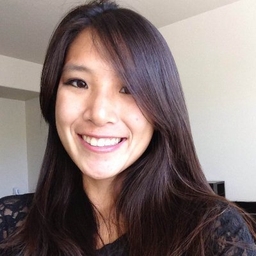
Katherine J. Wu
Staff Writer at The Atlantic
Senior Producer at The Story Collider
Senior Editor at The Open Notebook
staff writer @TheAtlantic, covering science. also senior producer @storycollider, senior editor @Open_Notebook. (she/her)
Articles
-
2 weeks ago |
theatlantic.com | Katherine J. Wu
When Robert F. Kennedy Jr. accepted his new position as health secretary, he made a big show of distancing himself from his past life. “News reports have claimed that I am anti-vaccine or anti-industry,” Kennedy, who has for decades promoted the debunked notion that vaccines cause autism and has baselessly sown doubt over the ability of the U.S. government to vet shots, said at his confirmation hearing in January. “I am neither.
-
2 weeks ago |
theatlantic.com | Katherine J. Wu
Since winning President Donald Trump’s nomination to serve as the director of the National Institutes of Health, Jay Bhattacharya—a health economist and prominent COVID contrarian who advocated for reopening society in the early months of the pandemic—has pledged himself to a culture of dissent. “Dissent is the very essence of science,” Bhattacharya said at his confirmation hearing in March.
-
3 weeks ago |
theatlantic.com | Katherine J. Wu
Solving HIV vaccination—a puzzle that scientists have been tackling for decades without success—could be like cracking the code to a safe. The key, they now think, may be delivering a series of different shots in a specific sequence, iteratively training the body to produce a strong, broad immune response that will endure against the fast-mutating virus, ideally for a lifetime.
-
3 weeks ago |
flipboard.com | Katherine J. Wu
1 day agoTrump Administration Cancels $600 Million Contract to Develop Bird Flu VaccineNEED TO KNOW The U.S. Department of Health and Human Services has pulled $600 million in funding it had previously promised to pharmaceutical company Moderna to develop a vaccine for bird flu in humans, citing concerns about mRNA technology.
-
1 month ago |
theatlantic.com | Katherine J. Wu
In November of 2021, Vladimir Dinets was driving his daughter to school when he first noticed a hawk using a pedestrian crosswalk. The bird—a young Cooper’s hawk, to be exact—wasn’t using the crosswalk, in the sense of treading on the painted white stripes to reach the other side of the road in West Orange, New Jersey. But it was using the crosswalk—more specifically, the pedestrian-crossing signal that people activate to keep traffic out of said crosswalk—to ambush prey.
Try JournoFinder For Free
Search and contact over 1M+ journalist profiles, browse 100M+ articles, and unlock powerful PR tools.
Start Your 7-Day Free Trial →X (formerly Twitter)
- Followers
- 42K
- Tweets
- 7K
- DMs Open
- Yes

I suppose I am here now https://t.co/g1Q7dCV0vQ

these tricky mfers https://t.co/vm7AtB2SL0

RT @amymaxmen: My 2c on the latest in Covid origins @PostOpinions Genetic sequences from the Wuhan market can reveal so much, curbing bas…